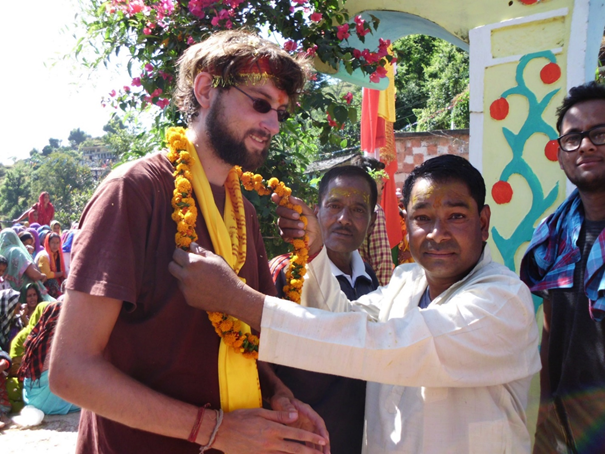01.12.2023, 9.00-12.30 CET, online
Dutch historian Johan Huizinga used the notion of the ‚historical sensation‘ to describe an immediate contact with the distant past, best expressed in his opus magnum „The waning middle ages“ (1919). The workshop refers to an ‚ethnographic sensation‘ to describe a momentum or turning point of experience in the field that remains remarkable in the researcher´s professional life and a reference point to the self-understanding as an ethnographical religious researcher as well as his or her view on the respective research field.
The notion of ethnographic sensation is based on the study of vernacular religion, that is religion as it is experienced, understood, and practiced in everyday life (Bowman/Valk 2012). Transcending the border between „official“ and „folk“ religion, the ethnographic study of religion attempts to partially immerse in the field in order to bring to the fore insights that challenge an etic understanding of religious analysis (Amann/Hirschauer 1997).
Experiencing the ethnographical data as a sensation is to reflect upon religion in bodily, affective, sensual, and emotional terms (Schaefer 2015), study practices of human differentiation (Hirschauer 2019), and the researcher’s role in the field (Hegner 2013). The workshop intends to shed light on these dimensions, approaching the ineffable (Schwaderer/Waldner 2020).
It is an invitation to get an idea about ethnographical research and come to terms with affective and everyday studies of religion. The workshop is organized by the Arbeitskreis Mittelbau und Nachwuchs der Deutschen Vereinigung für Religionswissenschaft and will be held online, on Friday, Dec 01 from 09.00 -12.30. The three speakers are Gerrit Lange, Ilyana Angelova, and Arndt Emmerich. The introduction is done by Evelyn Reuter and Mehmet Kalender, the final discussion in led by Isabella Schwaderer and Thorsten Wettich.
Program
09.00 – 09.15 Welcome and Introduction
Evelyn Reuter, University of Graz
Mehmet Kalender, University of Göttingen
09.15 – 10.00 How to „Grasp“ the Feelings of Others? Ethnographic Approaches between „Capturing“ the Nonverbal in Film and Being Oneself „Seized“ by a Collective mood
Gerrit Lange, University of Marburg

Ethnographic research in any case depends on some capacity to feel what others feel, in order to discern specific emotions in the gestures, words, voices and facial expressions of others – the more so in the ethnographic study of religion, which is, throughout the manifold attempts to define it, more often than not understood as a highly emotional field. In my case, this weak ground to stand on (far from any firm ground of evidence-based „hard facts“) was even further softened by my decision to write my PhD thesis about the feelings of a Himalayan Hindu goddess. In our workshop, I would like to discuss my approaches to „capture“, „grasp“ or „handle“ this misty, fluid or otherwise elusive matter through participant observation, filming and analyses of oral storytelling.
10.15 – 11.00 Surviving the Mega-City: The Experiences of Minority Christian Migrants in New Delhi, India in the Eyes of the Researcher
Ilyana Angelova, University of Bremen

This paper is a methodological reflection on my experiences of conducing long-term ethnographic fieldwork among Naga Christian communities in India over the past decade or so. Through some ethnographic vignettes and anecdotes from the field, the paper offers a glimpse into the challenges and joys associated with being a social anthropologist in the field – and the resultant implications of these experiences for forging the trajectory of my academic career so far.
11.15 – 12.00 A Distrusted Outsider: Ethnographic Sensations and Challenges Researching Religious Communities and Interreligious Encounters in the Global South and North
Arndt Emmerich, Max-Planck-Institute Heidelberg

In this talk, I’ll reflect upon my ethnographic fieldwork experience with several religious minority groups, including missionary, dawah, political and lay actors in different local settings and securitised contexts across three countries (India, German and the UK) over the last 10 years. I’ll draw on empirical examples and theoretical debates regarding the development of insider and outsider accounts and etic and emic perspectives during these different stints of research. Thereby, I discuss the potential and limitations in striving for an empathetic understanding and ethnographic sensation as an ethnographer, and link it to the tension and so-called metropolitan paradox, which can arise from doing research with disenfranchised religious communities and about everyday life in general.
12.00 – 12.30 Final Discussion: What does religious studies have to win from ethnographic sensations?
Isabella Schwaderer, University of Erfurt
Thorsten Wettich, University of Bremen
The workshop will be held online only. The respective link is: https://uni-goettingen.zoom-x.de/j/66524308240 (Meeting-ID: 665 2430 8240). No password is required, and no registration is necessary. The Workshop is also a chance to better get to know the work of the Working Group for Young Scholars within the German Association for Religious Studies. We are looking forward to your participation!